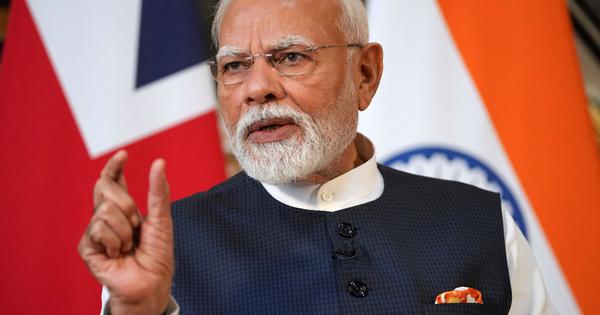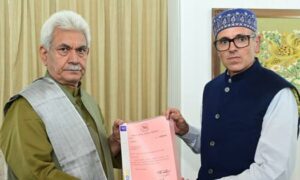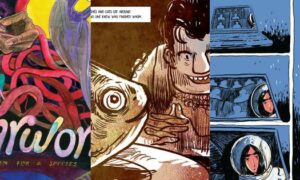
The Delhi High Court’s judgment on August 25 that Delhi University need not disclose Prime Minister Narendra Modi’s degree has ignited fresh debate about transparency, truth and accountability in Indian democracy.
The court’s claim that such disclosure intrudes into personal privacy raises questions not only about the balance between privacy and the right to information but also about the integrity of electoral politics.
At its heart lies a simple but explosive issue: if the prime minister’s degree is fake, it amounts to having filed a false affidavit under election law, which would attract disqualification and even criminal prosecution. That the judiciary has chosen to shut the matter down instead of allowing scrutiny reveals the depth of institutional compromise.
This controversy cannot be dismissed as a minor distraction. It strikes at the foundations of constitutional democracy: truth in representation, accountability of those in public office and the ability of citizens to verify claims made by their leaders.
In a polity where image management has replaced substantive politics, the prime minister’s degree has become more than a certificate – it is a symbol of how spectacle overwhelms truth.
Sapping of the spirit of RTI
The Delhi High Court’s decision, after nearly nine years, to quash the Central Information Commission’s directive in 2016 asking Delhi University to disclose Modi’s degree represents a troubling retreat from the spirit of the Right to Information Act.
The court’s reasoning – that educational qualifications constitute “personal information” exempt from disclosure under Section 8(1)(j) of the Act – ignores the public interest embedded in the case.
When an individual occupies the highest elected office in the country, claims about their academic qualifications cannot be reduced to a matter of private concern. The prime minister’s degree is not merely a personal detail but an element of his public persona, repeatedly invoked by his party in political campaigns and therefore subject to legitimate public scrutiny.
By insulating this information from disclosure, the court effectively shields powerful individuals from transparency while ordinary citizens face invasive scrutiny of even minor details in their dealings with the state.
Equally problematic is the timing and implication of the ruling. By taking nearly a decade to decide what should have been a straightforward matter, the judiciary has undermined the RTI framework, which was designed for timely access to information.
Instead of reinforcing the principle that transparency is the rule and secrecy the exception, the High Court has expanded the scope of exemptions in favour of the powerful, weakening the citizen’s right to know and emboldening a culture of impunity where accountability is sacrificed at the altar of political convenience.
When the PM’s degree is authentic, why hide it behind ‘privacy’?
Nine years after RTIs began demanding PM Modi’s DU degree, the Delhi High Court ruled that it’s ‘personal information’.
We explain 3 facts that don’t support this argument for keeping the PM’s degree hidden. pic.twitter.com/ahu9XL15H9
— Peek TV (@PeekTV_in) August 28, 2025
The order represents not just a narrow legal interpretation but a profound betrayal of the ethos of the RTI Act. The Supreme Court, in landmark judgments such as PUCL v. Union of India (2003) and Lok Prahari v. Union of India (2018), had affirmed that voters have a fundamental right to know the educational, financial and criminal antecedents of candidates.
The High Court’s reasoning runs directly counter to this jurisprudence. By ignoring the Supreme Court’s insistence that privacy exemptions under Section 8(1)(j) be narrowly construed and always subject to overriding public interest, the judgment erodes one of the few tools available for holding the political class accountable.
What makes the ruling even more damaging is its fit within the larger erosion of transparency under Modi’s rule. Over the past decade, the RTI regime has been systematically hollowed out. The 2019 amendments curtailed the autonomy of the central information commissioner by placing commissioners’ tenure and salaries under government control, while the institution itself has functioned more as a gatekeeper than a guarantor of transparency.
With pending cases now exceeding three lakh, disclosure rates shrinking and refusals multiplying, the system is already in crisis. The Delhi High Court judgment dovetails neatly with this trend: by insulating the prime minister from scrutiny, it reinforces a political culture where the most powerful remain opaque even as ordinary citizens are subjected to expanding surveillance and intrusive verification regimes like Aadhaar.
The Delhi High Court’s invocation of privacy misframes the issue as a clash between individual rights and public curiosity. But this is no voyeuristic intrusion. Modi’s degree is not a private diary or medical record. It is a credential he himself placed in the public domain, via affidavits, to secure electoral legitimacy. Once so declared, it becomes fair game for verification. In fact, shielding such information undermines privacy jurisprudence itself.
Privacy is meant to protect individuals from arbitrary state intrusion, not to enable powerful leaders to evade scrutiny. To conflate the two is to hollow out both privacy and transparency.
In short, the judgment is not an isolated legal misstep but part of a systemic erosion of transparency: it undermines the Supreme Court’s own jurisprudence, weakens a vital democratic safeguard, and reinforces the political project of opacity under Modi.
When bravado boomerangs
The controversy over Narendra Modi’s degrees began years earlier. In 2016, during a defamation case filed by Modi against political opponents, the matter was sub-judice in a court in Ahmedabad. As part of the legal process, the court had accepted the degrees as evidence.
Amit Shah, the Bharatiya Janata Party president at the time, held a press conference on May 10, 2016, to present to the media documents that he claimed were authenticated copies of Modi’s degrees. The stated goal was to put an end to the speculation. However, the documents presented by Shah had the opposite effect and became the subject of intense scrutiny and further ridicule.
The documents shown were a bachelor’s degree (BA) from Delhi University and a master’s degree (MA) from Gujarat University. The documents, critics claimed, had obvious anomalies.
PM Modi’s educational degrees made public by Shri @AmitShah : BA from Delhi University & MA from Gujarat university. pic.twitter.com/6A4pzGXLRl
— BJP (@BJP4India) May 9, 2016
The BA degree from Delhi University (dated March 23, 1979) appeared to be computer-printed. This was a major point of contention. In 1979, personal computers were virtually non-existent in India, and official documents like degrees were almost exclusively typewritten. The use of a modern, computer-generated font (like Times New Roman, which was created in 1931 but only became widespread with desktop publishing in the 1980s and ’90s) on a document supposedly from 1979 raised serious doubts about its authenticity, critics claimed.
Seven days after Amit Shah’s press conference, Chandan Nandy published Modi’s marksheets for his BA examination along with one of his contemporary’s in The Quint and noted six purported discrepancies.
The Aam Adami Party looked into the matter and said that no one named “Narendra Damoderdas Modi” had passed out of the Delhi University in 1978, as Modi had claimed in his 2014 affidavit. It produced the degree certificate of a person named “Narendra Mahavir Modi” from Alwar, Rajathan. The party alleged that the degree certificate presented by Shah was fake. The BJP did not respond to the claim.
Critics also said that the Master’s degree displayed by Shah stated that Modi had completed his studies in “Entire Political Science” as opposed to the standard phrasing “Political Science”. Critics claimed this was further evidence that the document was not genuine.
Despite these anomalies, the BJP and Amit Shah maintained that the degrees were absolutely genuine and obtained legally from the universities. Both Delhi University and Gujarat University issued statements affirming that Narendra Modi had been a bona fide student and that the degrees were authentic. They addressed some of the queries, such as the phrase “entire”, as a matter of standard university nomenclature in translation.
In March 2017, the court in Ahmedabad dismissed a criminal defamation case filed by Modi against leaders of the Aam Aadmi Party who had questioned the authenticity of the degrees. The court said that the act of questioning the documents did not amount to criminally defaming the prime minister. However, this was not a ruling on the authenticity of the degrees themselves.
The issue also played out in RTI requests, with the chief information commission eventually ordering Delhi University to allow inspection of its records of all students who passed the BA exam in 1978 (the year Modi claimed to have graduated). The university challenged this order in the High Court, citing privacy concerns. The recent judgement related to this case.
If Modi’s degree is genuine and already in public domain, why has Supreme Court set aside the order of the officer to showcase Modi’s degree?
Or it’s not genuine? pic.twitter.com/wfYPzBcwv1
— Tarun Gautam (@TARUNspeakss) August 25, 2025
Spectacle over substance
Does the degree really matter? After all, the Constitution does not prescribe educational qualifications for becoming prime minister. India has been led by leaders of varying academic backgrounds, from scholars like Manmohan Singh to grassroots politicians with minimal formal education. The issue is not whether a leader has a degree but whether he told the truth about it.
Here lies the crux: Modi’s politics thrives on spectacle, on carefully staged symbols that substitute for reality. The “56-inch chest”, the “development man”, the “self-made technocrat” and omniscient “non-biological” person – all well-crafted narratives.
The degree controversy is of a piece with this larger trend: facts are irrelevant when myth can be manufactured. In an era of post-truth politics, the degree certificate is less a document of education than a litmus test of honesty.
The court’s decision, by shielding the degree from scrutiny, aligns with this politics of spectacle. Instead of upholding the principle that truth must be verified, it implicitly endorses the idea that image is enough, that citizens have no business peeking behind the curtain.
What makes this episode especially troubling is the silence – even collusion – of institutions that are meant to uphold accountability. Delhi University’s evasiveness, Gujarat University’s legal resistance to disclosure and now the High Court’s ruling form a chain of obstruction. Each step deepens the suspicion that there is something to hide.
The Election Commission of India, which is supposed to ensure the veracity of candidate affidavits, has been conspicuously passive. This is in contrast with its alacrity in disqualifying opposition legislators for relatively minor infractions. The asymmetry suggests not neutrality but bias, reinforcing the perception that institutions have been captured by the ruling regime.
Even the judiciary, long seen as the last bulwark of democratic accountability, seems unwilling to confront the executive. By invoking privacy in this context, the court effectively created a doctrine of immunity for political elites. If leaders’ educational records are private, what about their assets? Their criminal cases? Where does the right to know stop?
If Supreme Court declared in 2016 that election of candidates can be set aside if they lie about education, how can Delhi High Court rule in 2025 that Delhi University need not disclose details of PM Modi’s degree as it is ‘personal information’? https://t.co/ExvNowmYAf
— Jawhar Sircar (@jawharsircar) August 27, 2025
The ethical question
There have been instances of politicians falsifying their educational qualifications. In 2015, Delhi Law Minister Jitendra Singh Tomar of the Aam Adami Party was arrested and forced to resign after a court found his LLB degree from Tilka Manjhi Bhagalpur University to be fake.
While Tomar was punished, Smriti Irani of the BJP – who was alleged to have misrepresented her own qualifications in election affidavits – has escaped scrutiny. Like it had done in Modi’s case, the Delhi High Court last month said her educational qualifications were “personal information”.
Beyond law and politics lies the ethical dimension. At stake is nothing less than the value of truth in public life. If leaders can misrepresent basic facts about themselves without consequence, the very idea of accountability collapses. Citizens are reduced to consumers of propaganda, not participants in democracy.
It is not the degree but the integrity and honesty are in question. If a prime minister is suspected of being evasive about something as mundane as an education degree, it fuels concerns that he might try to escape questions about other matters too?
The issue spirals from the personal to the systemic: a politics built on falsehood corrodes public trust, fosters cynicism and normalises deceit.
History offers parallels. US President Richard Nixon’s Watergate scandal was not about the break-in itself but about the cover-up. Bill Clinton’s impeachment was not about private conduct but about perjury. In Brazil, President Jair Bolsonaro’s manipulation of vaccine records was less about medicine than about deceit. When leaders treat truth as optional, democracy suffers lasting damage.
The degree controversy may appear symbolic, but symbols matter. It reveals how easily institutions bend to protect the powerful. It exposes the fragility of the “right to know”, once hailed as a milestone of Indian democracy. And it highlights the paradox of Modi’s leadership: a man who has built his entire politics on image cannot allow that image to be punctured by fact.
The implications go further. If courts prioritise privacy over transparency in political disclosures, future leaders too may hide behind this shield. False affidavits may proliferate, with little recourse for voters. The already weakened mechanisms for accountability – the Election Commission, the RTI, the media – will deteriorate further. Democracy will become not a system of informed consent but of manufactured consent.
A test for democracy
The controversy over Modi’s degree is not about a piece of paper; it is about the meaning of democracy in India today. Does truth still matter in public life? Do citizens retain the right to verify the claims of those who govern them? Can rulers be held accountable under the rule of law or will image-making, spectacle and institutional complicity render accountability obsolete?
By refusing disclosure, the Delhi High Court has set a troubling precedent. It has, in effect, told Indians: you do not need to ask questions; you only need to believe.
That is not democracy. It is faith masquerading as politics. And when faith replaces fact, when spectacle replaces truth, the crisis is not about one man’s degree. It is about the degree to which democracy itself has been hollowed out.
Anand Teltumbde is a former CEO, Petronet India Limited, professor at IIT Kharagpur and the Goa Institute of Management, writer and civil rights activist.
This article first appeared on Scroll.in
📰 Crime Today News is proudly sponsored by DRYFRUIT & CO – A Brand by eFabby Global LLC
Design & Developed by Yes Mom Hosting






